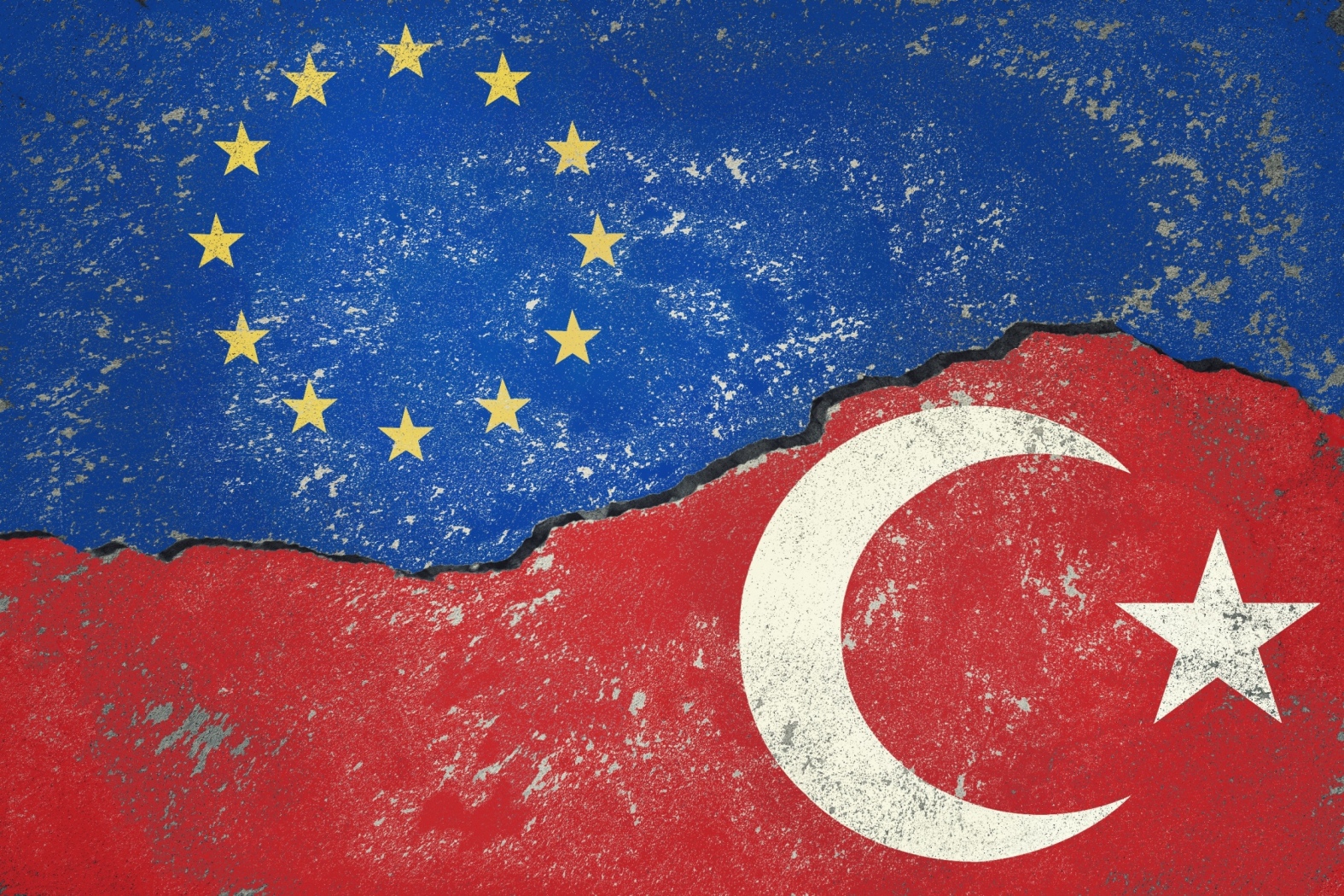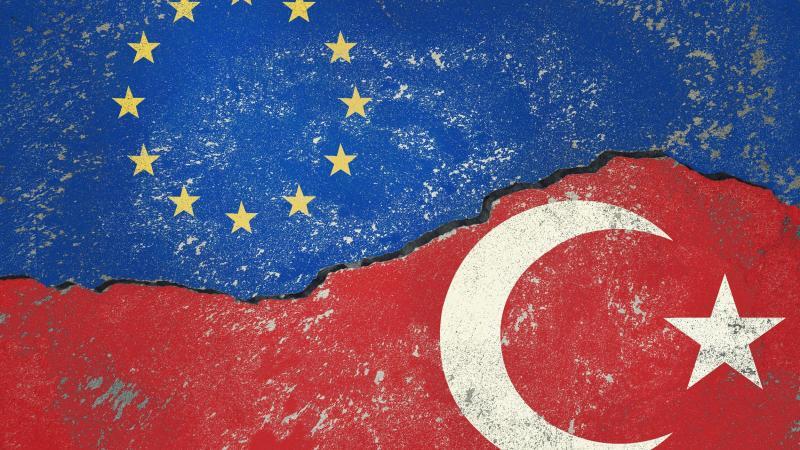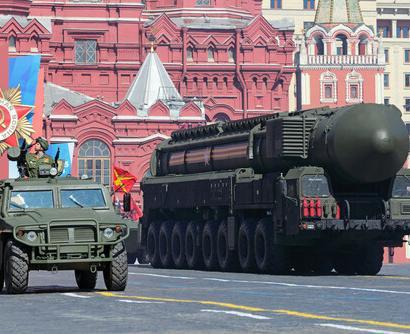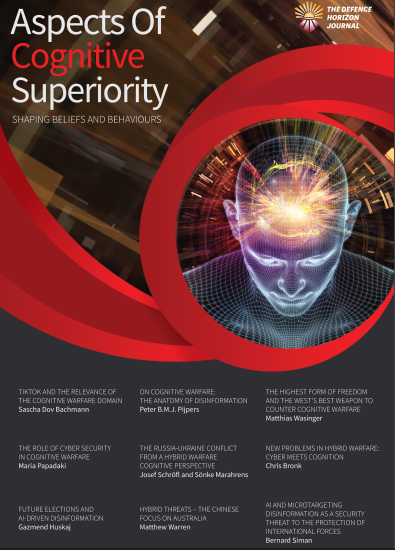Abstract: This paper expands upon the Turkish accession process’s history, its politically fueled policy implications, as well as the cultural and structural factors delaying this process. Moreover, it discusses other conditions and prerequisites set by religions in interpreting the concept of democracy. Further, it analyses aspects of the varying interpretations of secularism in the EU. Although secularism is mostly understood as a ‘separation of state and religion’ in governance, it plays a pivotal role in shaping societal consciousness on cultural and religious tolerance and exclusivity, and the notion of identifying as ‘European’ or ‘Non-European’. Therefore, the analysis of secularism enables a broader scope for evaluating the cultural hurdles towards Turkey’s accession to the EU. Finally, the paper concludes with an explanation of the current deadlock for the accession of Turkey to the EU.
Bottom-line-up-front: Turkish accession to the EU is complicated by the ‘exclusivist’ nature of European identity. This restricts entities to become European by developing social and cultural practices characterized by a ‘European nature’. By this logic, Turkey is and always would be unable to meet the Copenhagen Criteria due to its religious and cultural commitments and is therefore unfit to become ‘European’.
Problem statement: How to understand the deadlock in Turkey’s EU accession efforts in light of secularism, the Copenhagen Criteria and cultural diversity?
So what?: On the Turkish part, importantly, democratic backsliding must stop, as modernisation and ‘Europeanisation’ through real secularisation are the only way towards inclusion in the EU. Considering recent developments in Turkey spearheaded by President Erdogan and the Justice and Development Party, the above recommendations may seem currently impossible. On the EU’s part, the EU and its member states must further sensitise, allowing ‘European identity’ to become more inclusive and tolerant.

Source: shutterstock.com/sondem
Secularism as Precondition for Europeanisation?
The Turkish accession to the European Union has been a highly politicised, long withstanding issue that has not yet been realised. According to the Charter of the EU, the norms set by the Copenhagen Criteria must be followed whilst enlarging the EU. These include the following: 1) “Political Criteria: stability of institutions guaranteeing democracy, the rule of law, human rights and respect for and protection of minorities; 2) Economic Criteria: a functioning market economy and the capacity to cope with competition and market forces; 3) Administrative and Institutional capacity to effectively implement the acquis* (the body of common rights and obligations that is binding on all the EU member states) and ability to take on the obligations of membership”[1] However, even if Turkey does meet the norms set by the Copenhagen criteria in the near future, its accession to the EU may not be confirmed. This is due to the several differences in the social consciousness of the populations of both the EU and Turkey. Being a Muslim majority country, Turkey follows ‘Kemalism’ in its approach towards secularism[2]. Kemalism aims to not just separate ‘state’ and religion but also rids all educational, cultural and legal institutions from religious domination. On the other hand, EU nations are directed by secular approaches from Laicism and Judeo-Christian Secularism[3]. The role of religion in Governance is one of the key cultural and societal factors which makes the process of ‘Europeanisation’ extremely difficult for Turkey.
Kemalism aims to not just separate ‘state’ and religion but also rids all educational, cultural and legal institutions from religious domination.
This paper aims to address the hurdles set by religion and cultural perceptions in the process of EU integration. Although multiple sources admit that the accession of Turkey to the EU has been delayed due to non-compliance with the Copenhagen Criteria[4], there is enough academic evidence to also suggest that the accession of Turkey to the EU would involve not only the re-imagination of society and the European project by Turkish citizens but also by the citizens of the EU. Hence, Turkey’s accession to the EU may be considered a ‘two-way’ street, demanding massive societal re-imaginations for both culturally different societies[5]. Current research on this topic does not address the role of secularism as a key ingredient in the Turkish accession deadlock with the EU. This includes the idea of secularism and its current form in Turkey, as well as in different member states of the EU contributing to the ‘collective European identity’.
Turkish Accession to the EU and its History: Cultural and Structural Blockades
Formally, Turkey applied for EU membership in 1987[6]. However, since then, Turkish accession to the EU has been characterised by a high level of political debates and instability on both sides. In 1989, the application for membership to the EU was rejected, citing insufficient economic development in Turkey, insufficient availability of civil and political rights and freedom in Turkey, high unemployment rates that could destabilise the EU trade system, and the still ongoing Cyprus Dispute. However, due to geographical, political and economic cooperation necessities, the EU and Turkey signed their first Customs Agreement in 1995. This was followed by more rocky stages in this relationship and finally, in 1999, the monumental decision by the European Council in Helsinki was made to invite Turkey to join the Central and Eastern European Countries (CEEC) candidates for accession to the EU[7].
In 1989, the application for membership to the EU was rejected, citing insufficient economic development in Turkey, insufficient availability of civil and political rights and freedom in Turkey, high unemployment rates that could destabilise the EU trade system, and the still ongoing Cyprus Dispute.
In the post-1999 era, in view of joining the EU formally, successive Turkish governments strived to further democratise sections of the Turkish governmental system. Reforms were made in the Cyprus policy, which had previously been extremely closed, economic policies, judicial policies, civil-military relations, human and cultural rights, etc.v In February 2001, the European Council (EC) formally declared an ‘accession partnership’ with Turkey.[8] The ‘National Program for accession to the EU’ was also set up in the same year in Turkey, preparing the political system for increased ‘Europeanisation’[9]. However, this process was expected to take years, if not decades. The Copenhagen Criteria state the following three prerequisites for successful accession to the EU. They are: 1) being a stable democracy, respecting human rights, the rule of law and the protection of minorities; 2) having a functioning market economy and the capacity to cope with the competitive pressure and market forces within the Union; 3) adopting the common rules, standards and policies that make up the body of EU law (acquis communitaire).i Turkey’s accession is further complicated by European perceptions of Turkey. There is widespread ‘Turko-scepticism’ prevalent in the European population. This is due to Turkish lapses in terms of the lack of protection of human rights and minority rights and protection, limited freedom of expression (media, religion, etc.), corruption in the judiciary as well as insufficient acknowledgement of the Armenian Genocide in the early 20th Century. Besides, Turko-scepticism is also based upon Turkey’s immense population, its high unemployment rates, and a fear of a ‘takeover’ of the EU by the Turks.
Journalist Diane Wolff observed that ‘opposition to Turkey’s entry into the EU is based on the fear that Muslims do not want to be part of Europe but to dominate it’. As voting rights and other powers in the EU are based upon the populations of individual member-states, Turkey would immediately hold large amounts of power within the EU’s decision-making process. Due to accusations of the lack of transparency in Turkey’s decision-making, the EU and its citizens are wary of awarding such power to the Turks over them[10].
It may also be argued that these concerns reflect the cultural stigmas created within Europe against the Turks. Due to several radical Islamist terrorist attacks in recent years, as well as instability in neighbouring Muslim countries, there has been a growing wave of right-wing extremism and scepticism against a Muslim majority country entering the EU. This is confirmed by Gordon & Taspinar’s observation stating: ‘Many Europeans worry about taking in a country that is geographically largely outside Europe, and situated in a region plagued with conflict, instability, and terrorism’[11]. Controversies surrounding the publication of cartoons offensive to Muslims in European newspapers in 2006, the passage of the anti-headscarf law in France in 2004, the dispute over the inclusion of God in the EU’s preamble, etc are confirmations of the imminent cultural stigmas against Muslims in the EU. Recent controversies concerning the headscarf bans in Europe, including in France and Austria, remain influential cultural factors indirectly affecting Turkey’s accession process to the EU.
Recent controversies concerning the headscarf bans in Europe, including in France and Austria, remain influential cultural factors indirectly affecting Turkey’s accession process to the EU.
Therefore, although Turkey and the EU cooperate closely on matters including migration, energy and the fight against terrorism, multiple cultural and structural blockades do not allow further integration and cooperation at the moment. Migration remains the largest influential factor capable of bettering cooperation between the EU and Turkey, especially concerning the large influx of refugees from Afghanistan, Northern Africa and the Middle East.
Laicism, Judeo-Christian Secularism and Kemalist Secularism
To further understand the depths of religion’s role in EU integration and politics, it is vital to question the basic foundations of identity, democracy and secularism in Europe and Turkey. European secularism is based on the developments of a Judeo-Christian and Laicist perception of secularism. On the one hand, due to the Christian foundations of European democracy, the idea of being ‘European’ itself derived from Judeo-Christian morals.v These may already reflect the Copenhagen Criteria, which is based on these morals. On the other hand, secularism in Turkey is based upon the principles of Kemalism, which may be perceived ‘officially’ as similar to Laicism. However, Turkey still lacks the perception of being “secular enough” for Europeans. To confirm this, Oliver Roy explains, “Turkey will be rejected from the European Union not because the Turkish state fails to satisfy the EU’s demands to democratise, which would be a good reason, but because Turkish society is not ‘European’, meaning that it does not share the fund of Christianity that serves as the foundation of Laicism itself”. Therefore, it can be observed that the Turkish accession to the EU may be blocked due to the Europeans’ separate foundations of democratic and secular principles. Moreover, the rise of conservative nationalism in Turkey has increased Islamisation across institutions of the country. Conservative Nationalism in Turkey relies on the belief that Islam is a crucial component of national identity and history. Over the years, this national identity has been used as a political tool by populist politicians. Today, conflicts surrounding minorities and refugees has emboldened nationalist and conservative sentiments in Turkey.
Conservative Nationalism in Turkey relies on the belief that Islam is a crucial component of national identity and history. Over the years, this national identity has been used as a political tool by populist politicians.
Drawing upon the above findings, Turkish accession to the EU forces Europeans to reimagine their Christian / European identity, along with the allied approach towards secularism and democracy itself. ‘Laicism’, both in France and Turkey, refers to the purging of religion in all politics, along with heavy regulation of religious institutions and expression in public spaces. Therefore, according to Laicists, there should be no hurdle in Turkey’s accession to the EU, once it is ‘secularised enough’v. However, currently, the standards set by European Laicism are culturally and structurally completely incompatible with Turkey. The current political climate in Turkey indicates a steady decline of Kemalism with the rise of conservatism and concern for Islamic values within the system of governance. There remains a fear of Turkey backsliding into the realm of archaic practices due to insufficient development of its secular, laicist identity. Scholars regretfully refer to this as a ‘loss of Atatürks legacy’.[12]
Turkish accession to the EU is further complicated by the exclusivist nature of European identity fueled by Judeo-Christianity. This exclusivist identity restricts candidate countries to ‘become’ European by ‘developing’ social and cultural practices concurrent with European belief-systems. By this logic, Turkey is and would always be unable to meet the Copenhagen Criteria due to its religious and cultural commitments and is therefore unfit to become ‘European’. These cultural and religious commitments include instances like the teaching of religious practices in all Turkish schools and increased polarization between secular and Islamist politics in Turkey. Human Rights violations committed by the Government of Turkey and its’ forces remain signals warning the decline of Kemalist governance practices.
Conclusion
Turkish accession to the EU may seem impossible. The structural, cultural and religious differences between the EU and Turkey oppose the EU’s enlargement in this manner. Considering recent developments regarding Turkish democratic backsliding, ‘Turko-scepticism’ among the EU citizens may be wholly justified. The risk involved with current Turkish accession to the EU is large, and may, in turn, prove to be dangerous for the foundations of the EU. Although scholars believe that Turkey’s inability to meet the Copenhagen Criteria is the reason for the current deadlock, the same inability is utterly dependent on religious and cultural beliefs in both Turkey and the EU. It proves that religion truly plays a role in EU integration and enlargement projects. The heterogeneity in terms of secular viewpoints and not the heterogeneity in religions is the key issue as a takeaway from these findings.
The future of Turkish accession to the EU is uncertain. It may only be possible through the following: on the Turkish part, importantly, democratic backsliding must stop, as modernisation and ‘Europeanisation’ through real secularisation are the only way towards inclusion in the EU. Considering recent developments in Turkey spearheaded by President Erdogan and the Justice and Development Party, the above recommendations may seem currently impossible. On the EU’s part, the EU and its member states must further sensitise, allowing ‘European identity’ to become more inclusive and tolerant. Currently, it may be concluded that the EU is truly only a reflection of the Latin Christendom civilisation and nothing beyond, especially considering the increasing number of xenophobic events occurring across Europe. This ‘liberalisation’ may also involve the questioning and reforming of the Judeo-Christian European identity into a more universal, unbiased European identity. However, with the rise of conservative and right-wing Governments and notions across the EU, such a ‘liberalisation’ is also currently difficult.
Currently, it may be concluded that the EU is truly only a reflection of the Latin Christendom civilisation and nothing beyond, especially considering the increasing number of xenophobic events occurring across Europe.
Hence, the European notions of secularism and democracy must be put into question along with the regressive Turkish developments. The deadlock in question can only be effectively cleared with rigorous, social and cultural changes within both spheres. This deadlock also opens up new questions regarding integration not only in Europe but in other parts of the world. The role of subjective secularism in different parts of the world must be questioned to understand the definite understandings of democracies and democratisation. Recent debates regarding secularism in other parts of the world including India, the USA, etc. could also be further questioned with this analysis.
Shivraj Jagtap is a Master’s student of Global Studies at the University of Vienna, Austria. He has completed a Bachelor’s in German Studies at the Jawaharlal Nehru University, New Delhi, India, and holds a key interest in Global Governance, Public Policy, Environmental & Migration Policy. He also holds vital experiences of volunteering and working with multiple non-profit organisations in India and abroad. The views contained in this article are the author’s alone and do not represent the views of the University of Vienna.
[1] European Council, “TREATY ON EUROPEAN UNION AND THE TREATY ON THE FUNCTIONING OF THE EUROPEAN UNION” (2016/C 202/01), https://eur-lex.europa.eu/legal-content/EN/TXT/HTML/?uri=CELEX:12016ME/TXT&from=EN.
[2] Murat Akan and Umut Azak, “Islam and Secularism in Turkey: Kemalism, Religion and the Nation State” (London: I.B. Tauris, 2010), xv + 234. New Perspectives on Turkey, 46. 261-266. 10.1017/S089663460000162X.
[3] Elizabeth Shakman Hurd, “Negotiating Europe: The Politics of Religion and the Prospects for Turkish Accession,” Review of International Studies, 32, no. 3 (2006): 401-18, accessed September 4, 2021, http://www.jstor.org/stable/40072195.
[4] Beken Saatçioğlu, “How Closely Does the European Union’s Membership Conditionality Reflect the Copenhagen Criteria?,” Insights from Turkey, Turkish Studies (2009), 10:4, 559-576, DOI: 10.1080/14683840903384802.
[5] Elizabeth Shakman Hurd, “What Is Driving the European Debate about Turkey?,” Insight Turkey, 12, no. 1 (2010): 185-203, accessed September 4, 2021, http://www.jstor.org/stable/26331150.
[6] European Commission, “European Neighbourhood Policy and Enlargement Negotiations” (2021), accessed https://ec.europa.eu/neighbourhood-enlargement/countries/detailed-country-information/turkey_en.
[7] European Commission, “Recommendation of the European Commission on Turkey’s progress towards accession – 6 October 2004,” 2004, https://eur-lex.europa.eu/smartapi/cgi/sga_doc_11.
[8] European Council, “Accession Partnership Document for Turkey,” 2001, https://www.ab.gov.tr/files/AB_Iliskileri/Tur_En_Realitons/Apd/Turkey_APD_2001.pdf.
[9] Council of Ministers, Republic of Turkey, Ministry of Foreign Affairs, Directorate for EU Affairs, “2001 NPAA Documents,” 2001, https://www.ab.gov.tr/195_en.html.
[10] Ahmet Cemal Ertürk, “EU-Turkey relations: civil society and depoliticization,” Southeast European and Black Sea Studies, 2020, 20:3, 517-518, DOI: 10.1080/14683857.2020.1745419.
[11] Philip H. Gordon and Omer Taspinar, “Turkey’s European Quest: The EU’s Decision on Turkish Accession,” https://www.brookings.edu/articles/turkeys-european-quest-the-eus-decision-on-turkish-accession/.
[12] Robert L. Pollock, “The Sick Man of Europe – Again,” 2005, https://www.wsj.com/articles/SB110851241259955899.






